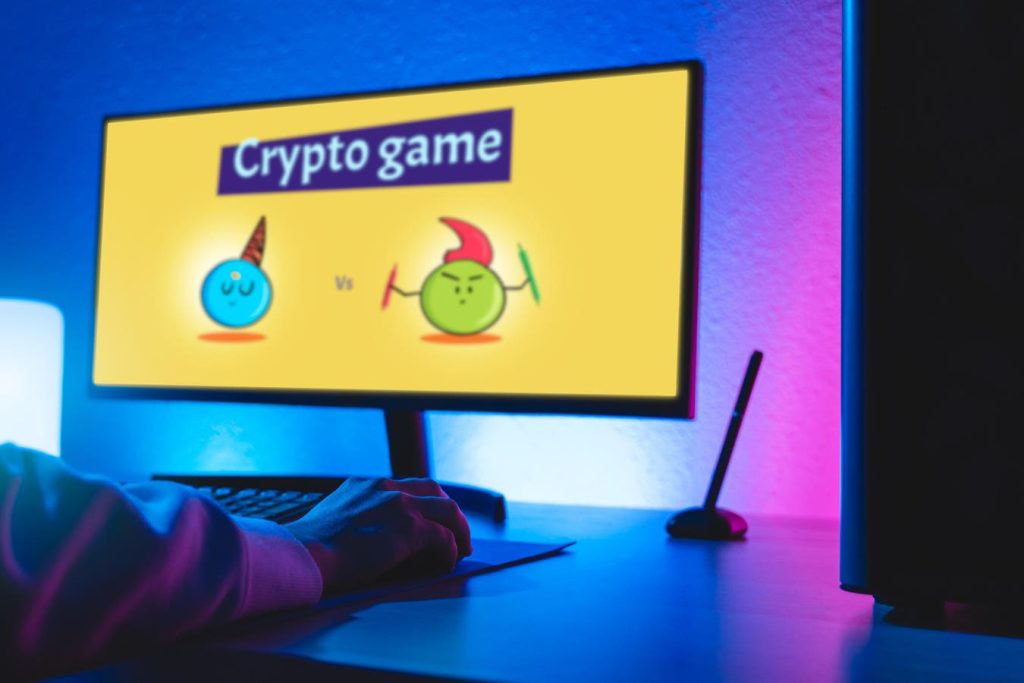Blockchain gaming, a cross between the world of gaming and blockchain, is revolutionizing the gaming industry. Simply put, this phenomenon is any game or platform that uses blockchain technology to manage in-game assets, verify transactions, or support game logic.
The Dark Side: Security Concerns
Like all technologies, blockchain gaming is not without its vulnerabilities. While the decentralized nature of blockchain inherently makes it more secure, this does not equate to absolute security. Actual safety depends on implementation and user practices. Crypto experts from Clash have shared insights about specific security challenges these games may face.
Insecure Digital Ownership of Tokenized Assets
Tokenized assets are digital assets represented as tokens on a blockchain. Think of them as digital certificates of ownership for any in-game items. The ownership of these tokenized assets is closely tied to cryptographic private keys. If users lose access to their private key, they effectively lose ownership of their tokenized assets.
Users might simply forget where they have stored their private keys, but there is an even greater concern: the rising trend o f phishing attacks. Hackers deceive users into revealing sensitive data, resulting in the loss of their digital gaming assets. Consequently, private key management has become a significant issue in recent times.
The Vulnerability of Smart Contracts
Smart contracts in blockchain gaming are highly efficient. They autonomously execute actions based on predefined conditions, thus reducing human errors and the need for intermediaries. However, as the complexity of these contracts increases, so does their vulnerability. Once activated, smart contracts are challenging to modify. Even a slight oversight in coding can cause significant unintended consequences that hackers might exploit.
Furthermore, smart contracts frequently interact with external data sources. If these interactions are not secured properly, they can become additional vulnerability points. Finally, deploying smart contracts without thorough testing is a significant problem, leading to many undetected vulnerabilities.
The Cyber Risks of Blockchain Platforms
Blockchain gaming platforms and marketplaces are increasingly becoming targets for cyberattacks. Using techniques like malware or web attacks, hackers penetrate platforms and player accounts. From there, they can manipulate the in-game economy or simply steal assets.
With data distributed across multiple nodes, blockchain games reduce the risk of data breaches or hacking attempts targeting a single central server. However, some blockchain games still rely on centralized servers. Besides, there are public-facing nodes that relay information to and from the blockchain. All of these can be targets for DDoS attacks. Such attacks might be used to disrupt a competitor’s game or demand ransoms.
Privacy and Identity Concerns
Gamers share a significant amount of information, from basic details like names and email addresses to sensitive financial information when making in-game purchases. Data breaches can lead to identity theft, financial losses, or unwanted intrusions into personal life.
Gamers create personas or avatars that they may wish to keep separate from their real-world identities. The ability to play anonymously is deeply valued by many players. Blockchain’s strength lies in its immutable nature, meaning once data gets stored, it cannot be altered or deleted. This immutability can pose issues if sensitive information needs correction or removal. Moreover, most blockchains are transparent, allowing anyone to view transactions. If not properly anonymized, this transparency can inadvertently reveal player identities or activities.
A player’s identity is their passport to the virtual world. It represents their achievements and reputation. With the rise of play-to-earn games and tokenized assets, players often have real monetary value attached to their in-game identities. Breaches could lead to financial losses.
Strengthening the Safety Nets in Blockchain Gaming
Ensuring player security is paramount for the gaming industry. Proactive measures are being introduced to ensure players can enjoy a secure gaming environment. Let me list key strategies to fortify security.
Multi-Signature Wallets
Many games now use multi-signature wallets, requiring multiple private keys to authorize a transaction. This adds an extra layer of security against unauthorized transactions.
Regular Security Audits
Routine checks by third-party firms ensure that games’ codes and smart contracts are secure and free from vulnerabilities.
Incorporating Zero-Knowledge Proofs
Games could use this cryptographic method to allow transactions without revealing transaction details, thus enhancing privacy.
Enhanced Player Verification
By introducing stringent verification processes, games can ensure that the players are genuine, reducing the scope for fraud.
Player Education and Awareness
By educating players about safe practices, games can minimize the risks of phishing attacks and scams.
Off-chain Storage
By storing sensitive player data off the blockchain and only using the blockchain for transaction verifications, gaming platforms can ensure higher levels of confidentiality.
Layered Security Measures
Using multiple layers of security, such as Web Application Firewalls (WAFs) and traffic analyzers, can help detect and deflect malicious actors.
Regulatory Measures
Governments and regulatory bodies worldwide are paying closer attention to tokenized assets, leading to AML, KYC, and other regulations to ensure user protection.
Conclusion
The blend of gaming and blockchain presents immense possibilities, but it is crucial for players and platforms alike to stay vigilant and updated on security measures. With the right precautions, we can ensure a seamless, secure gaming experience.
Read the full article here






